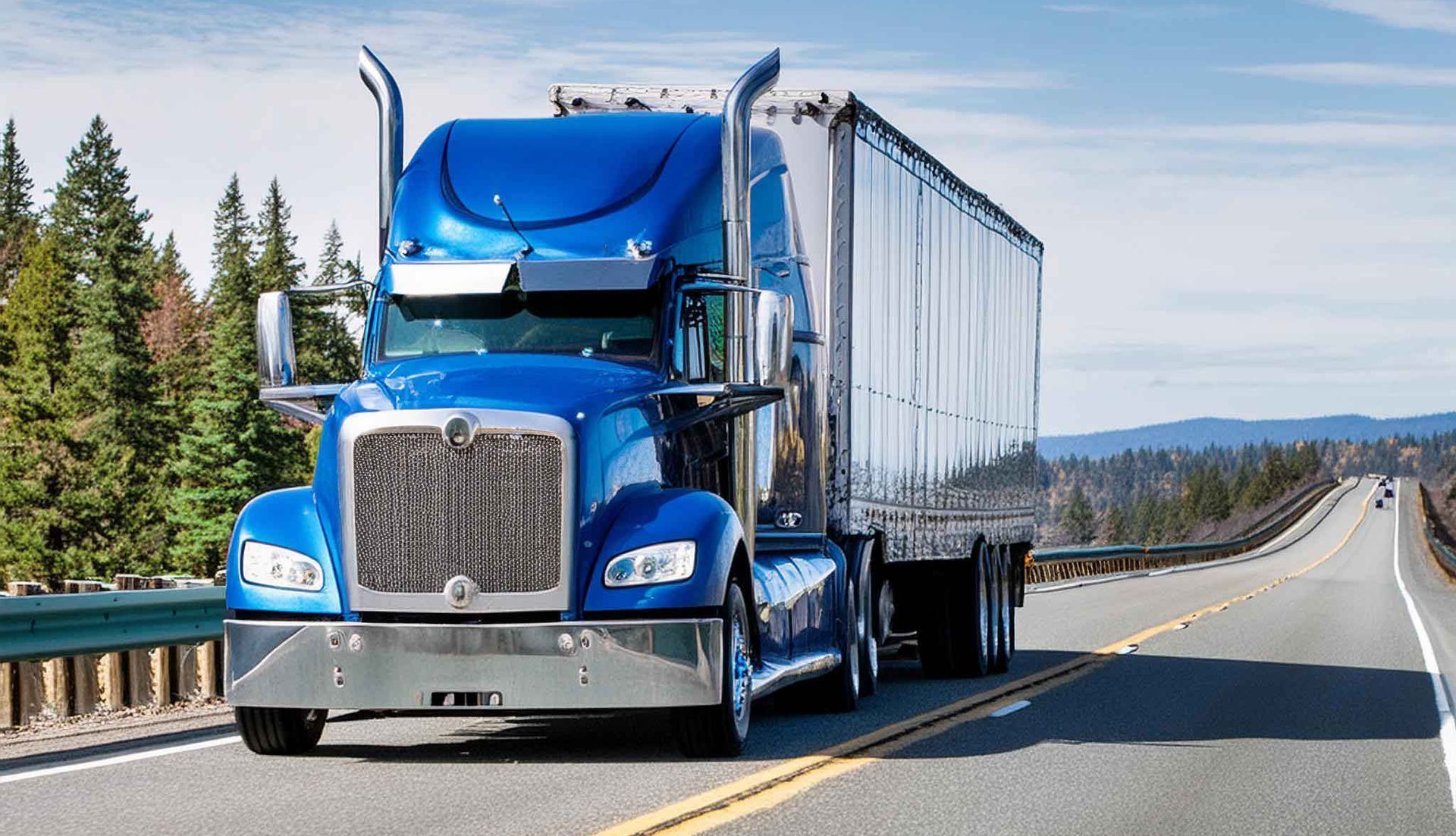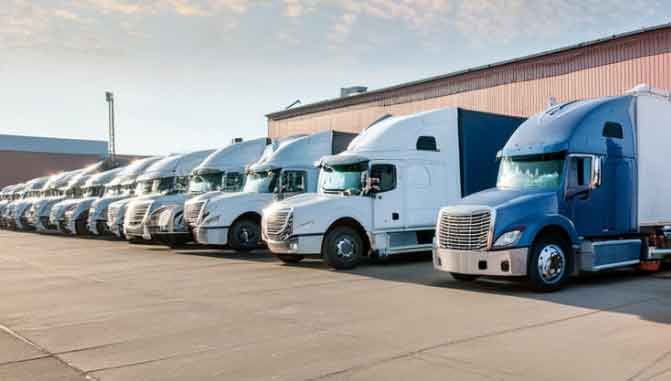LTL Freight: Pros and Cons for Shippers
LTL Freight
Less Than Truckload (LTL) freight plays a crucial role in efficiently transporting smaller shipments that do not require a full truck. Shippers, whether they are small businesses or larger enterprises, need to weigh the advantages and disadvantages of utilizing LTL services to make informed decisions. This article aims to provide an overview of LTL freight and explore its pros and cons for shippers.
What is LTL Freight?
LTL freight meaning refers to shipments that occupy a fraction of a trailer's capacity and are combined with other shippers' goods to maximize the use of space. LTL carriers operate on a hub-and-spoke model, where shipments are collected from multiple origins, consolidated at a central hub, and then distributed to their respective destinations. This approach makes LTL a cost-effective solution for shippers with smaller loads or those who do not require expedited delivery.
Pros of LTL Carriers for Shippers:
- Cost Efficiency: One of the significant advantages of LTL freight is its cost-effectiveness. Shippers only pay for the space their shipment occupies, sharing transportation costs with other companies. This can result in substantial savings compared to booking a full truckload for smaller shipments, especially for businesses with sporadic or variable shipping needs.
- Increased Accessibility: LTL freight services offer smaller businesses access to comprehensive logistics networks and carrier infrastructure that may otherwise be prohibitively expensive to maintain independently. By leveraging the expertise and resources of LTL carriers, shippers can access reliable transportation solutions, including tracking, insurance, and handling of paperwork, without the need for a full-scale logistics department.
- Flexibility and Scalability: LTL freight provides shippers with flexibility in adjusting shipping volumes according to demand fluctuations. Shippers can ship smaller quantities as needed, avoiding the cost burden of holding excess inventory. Additionally, as businesses grow, LTL freight services offer scalability by accommodating increasing shipment volumes without requiring the immediate transition to full truckload shipping.
- Reduced Risk: LTL freight carriers typically have sophisticated tracking systems, enhanced security measures, and extensive experience in handling various types of shipments. Shippers can benefit from these risk-mitigation measures, ensuring their goods are adequately protected during transit. Furthermore, LTL carriers generally have strict safety and quality standards, providing additional assurance for shippers concerned about the condition and handling of their goods.
Cons of LTL Freight for Shippers:
- Longer Transit Times: Due to the nature of LTL freight operations, where multiple stops and consolidation take place, transit times can be longer compared to dedicated truckload shipments. Shippers requiring time-sensitive deliveries may find LTL freight less suitable for their needs. It is crucial for shippers to communicate their specific delivery requirements and consider expedited options if necessary.
- Higher Risk of Damage: As LTL shipments share space with other goods, there is a slightly higher risk of damage or mishandling during transit. While LTL carriers implement stringent safety measures, the potential for accidents or improper handling by other shippers cannot be completely eliminated. Proper packaging and labeling of goods can help mitigate this risk.
- Potential for Freight Claims and Disputes: When multiple shippers' goods are combined, it can be challenging to determine responsibility in the event of loss, damage, or discrepancies. This can lead to potential delays and disputes when filing freight claims or seeking reimbursement. Shippers must maintain accurate records, including photographs, packing slips, and invoices, to support their claims effectively.
- Limited Control over Routing and Scheduling: Shippers relying on LTL freight services have limited control over routing and scheduling decisions. Carriers optimize routes and determine delivery schedules based on operational efficiency, which may not align perfectly with a shipper's preferences.
LTL Freight Essentials
What Shippers Need to Know About LTL Freight
- Understanding LTL Pricing: LTL freight rates are typically determined based on factors such as shipment weight, dimensions, density, distance traveled, and any additional services required. Shippers should familiarize themselves with the pricing structure and work closely with LTL carriers to optimize cost savings.
- Packaging and Labeling Considerations: Proper packaging and labeling are crucial in LTL freight shipments to ensure the safety and visibility of goods. Shippers should use sturdy packaging materials, secure pallets, and clearly label shipments with accurate information, including addresses, tracking numbers, and special handling instructions.
- Freight Classifications: LTL freight is categorized into different NMFC freight classes based on characteristics such as density, handling difficulty, and liability. Shippers should accurately classify their goods to avoid potential reclassifications by carriers, which can lead to unexpected cost adjustments.
- Transit Times and Delivery Windows: Shippers should be aware that LTL shipments may have longer transit times compared to dedicated truckload shipments. It is essential to communicate delivery requirements and expectations upfront to ensure alignment with the carrier's capabilities and to explore expedited shipping options if needed.
- Freight Tracking and Visibility: Most LTL carriers provide tracking services that are integrated through API into TMS systems that allow shippers to monitor the progress of their shipments. Leveraging technology and tracking tools provided by the carrier can enhance visibility and enable proactive communication with customers regarding delivery status.
- Freight Documentation: Shippers must ensure accurate and complete documentation for LTL shipments, including bills of lading, commercial invoices, and any other necessary paperwork. Inaccurate or missing documentation can lead to delays in transit and potential issues with customs clearance for international shipments.
- Collaborative Communication: Establishing clear lines of communication with the LTL carrier is vital. Shippers should proactively communicate their specific requirements, such as delivery appointments, special handling instructions, or any unique considerations related to their shipments.
- Insurance Coverage: Shippers should review their insurance policies to determine if they adequately cover goods in transit via LTL freight. While LTL carriers typically provide limited liability coverage, it may be advisable for shippers to consider additional cargo insurance for high-value or fragile shipments.
- Freight Claims Process: In the unfortunate event of loss or damage to the shipment, shippers need to be familiar with the carrier's freight claims process. Timely and accurate documentation, including photographs and supporting evidence, is essential when filing a claim for reimbursement or compensation.
- Choosing Reliable LTL Carriers: Shippers should conduct thorough research and select reputable and reliable LTL carriers. Factors to consider include the carrier's service quality, transit times, coverage area, customer reviews, and their experience in handling specific types of shipments.
By understanding these key aspects of LTL freight, shippers can make informed decisions, effectively manage their shipments, and optimize the benefits of utilizing LTL services for their logistics needs.
What is LTL vs FTL?
LTL (Less Than Truckload) and FTL (Full Truckload) are two distinct shipping options that differ in terms of shipment size and capacity utilization.
LTL (Less Than Truckload):
LTL refers to shipments that do not require a full truck's capacity and are combined with other shippers' goods to maximize space utilization. LTL carriers collect smaller shipments from multiple origins, consolidate them at a central hub, and then distribute them to their respective destinations. Shippers pay for the space their shipment occupies, sharing transportation costs with other companies. LTL is ideal for smaller loads, offering cost efficiency, accessibility to comprehensive logistics networks, flexibility, and reduced risk. However, it may result in longer transit times and a higher risk of damage.
FTL (Full Truckload):
FTL, on the other hand, involves shipments that occupy the entire capacity of a truck or trailer. Shippers with large volumes or shipments that require dedicated transportation can opt for FTL services. In this case, the entire truck is reserved for a single shipper's goods, providing faster transit times and direct delivery from the origin to destination without any intermediate stops or handling. While FTL offers faster delivery and reduced risk of damage, it can be more expensive compared to LTL, especially for smaller loads that don't require a full truck.
In summary, LTL is suitable for smaller shipments that do not require a full truck, providing cost savings and accessibility to smaller businesses. FTL is preferable for larger shipments or when time-sensitive delivery is required, ensuring faster transit times and dedicated transportation. Shippers need to assess their shipment size, budget, delivery timeline, and other specific requirements to determine whether LTL or FTL is the optimal choice for their shipping needs.
TLI Insights
Get the latest logistics insights and tips from TLI's award-winning team. Stay ahead in transportation planning.
Questions? Email us at marketing@shiptli.com



